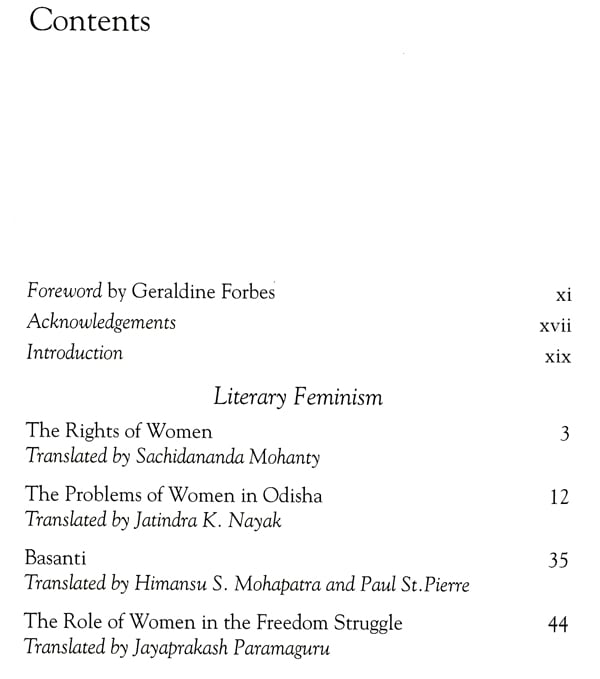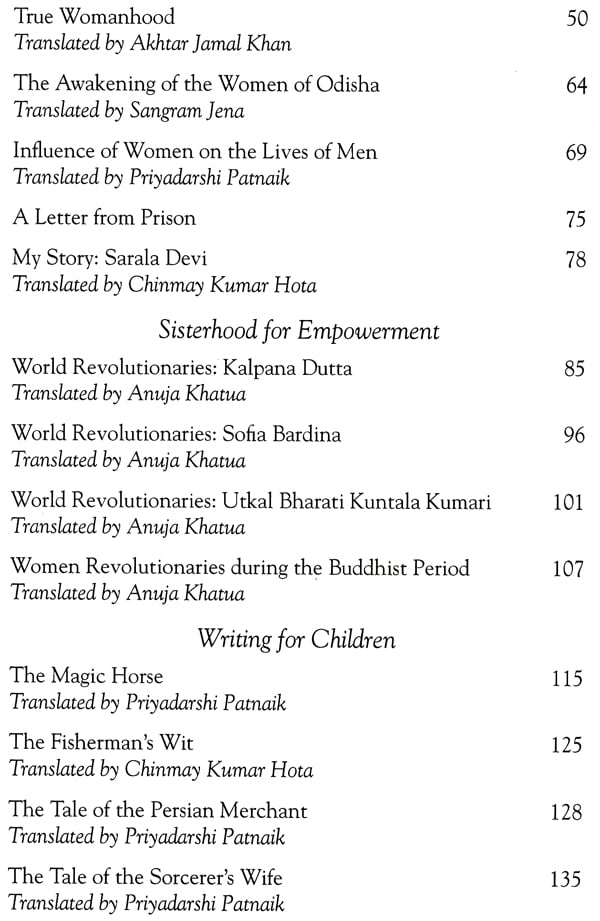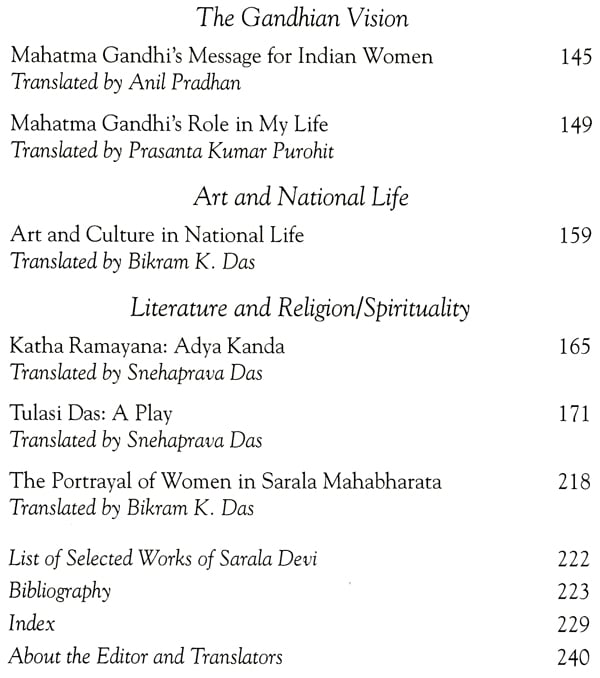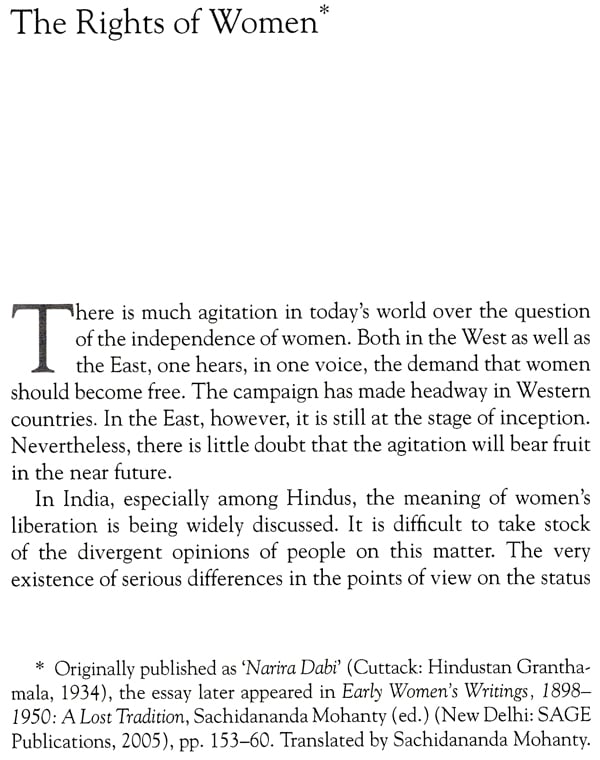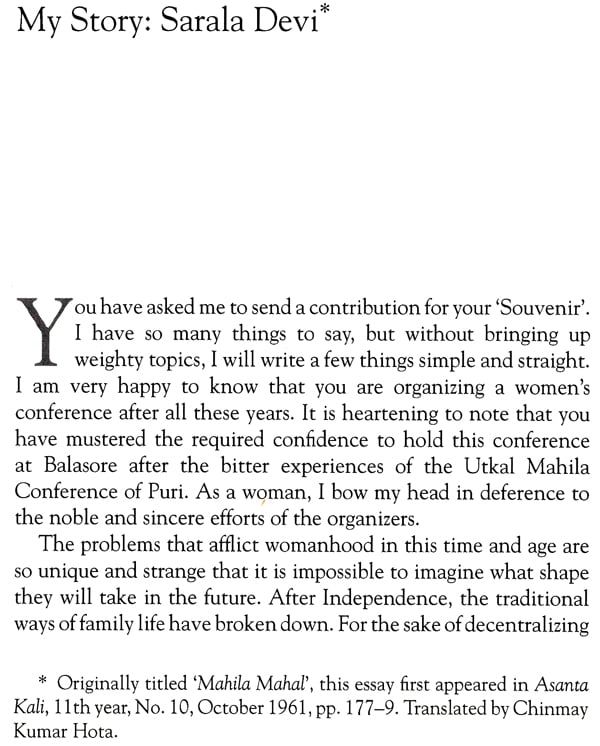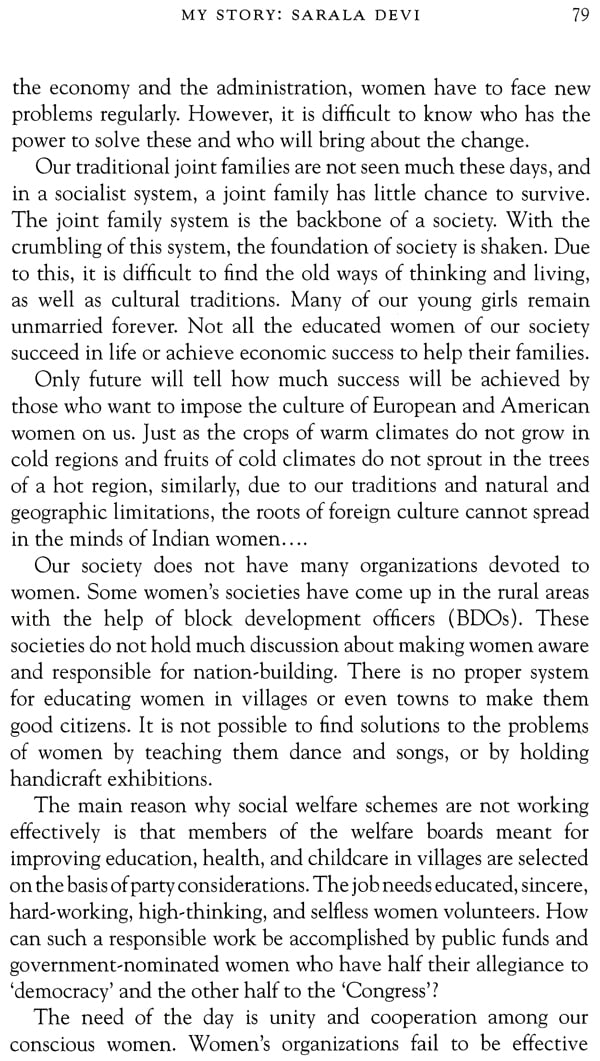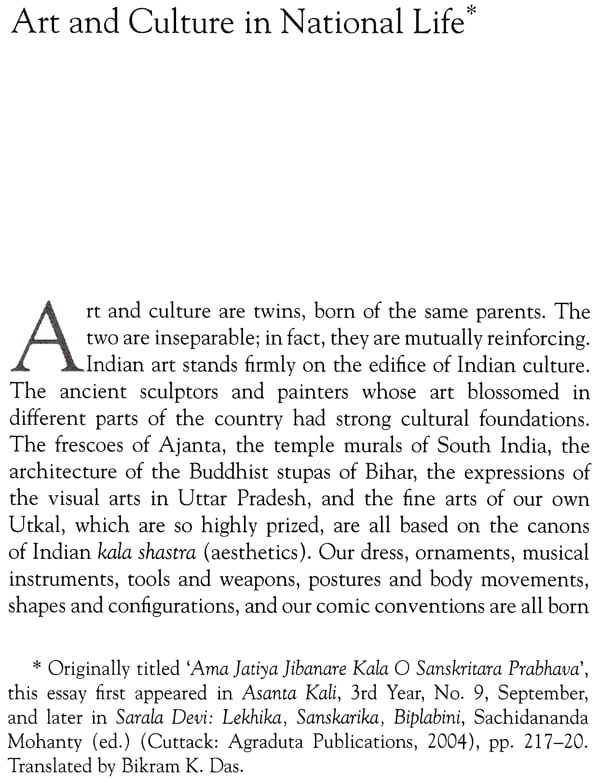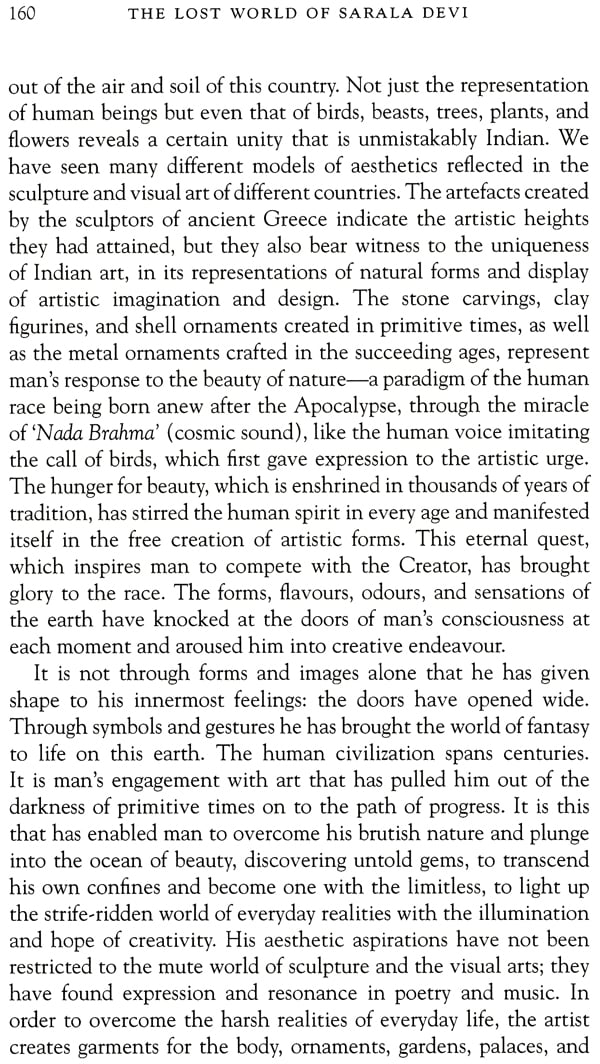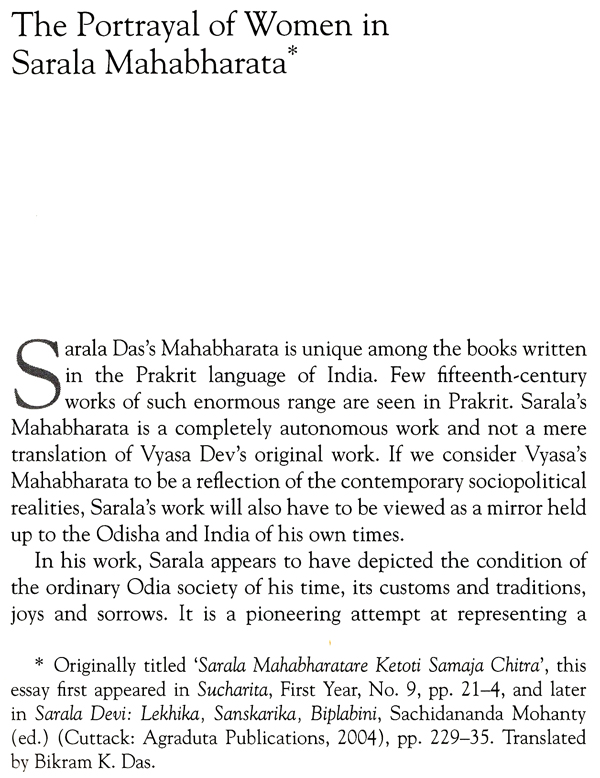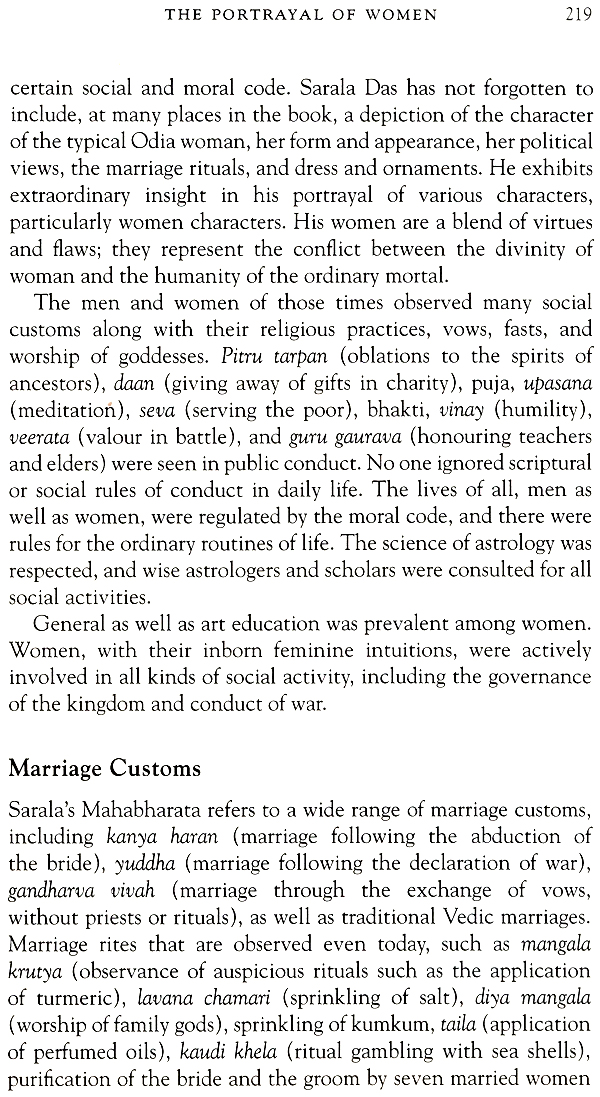
The Lost World of Sarala Devi (Selected Works)
Book Specification
| Item Code: | NAR841 |
| Author: | Sachidananda Mohanty |
| Publisher: | Oxford University Press, New Delhi |
| Language: | English |
| Edition: | 2016 |
| ISBN: | 9780199466672 |
| Pages: | 296 (4 B/W Illustrations) |
| Cover: | PAPERBACK |
| Other Details | 8.50 X 5.50 inch |
| Weight | 310 gm |
Book Description
A multifaceted personality and a prolific Odia writer, Sarala Devi (1904-1986) was a noted freedom fighter, feminist, and social activist of her times. Her work covers many forms, including prose, fiction, play, literary criticism, and biography. This book brings together some of Sarala Devi's best writings, including her charming tales for children with fascinating characters. Far ahead of her time, and completely forgotten now, she voiced important social and political concerns through her works and advocated a larger role for women in the public sphere.
Edited by Sachidananda Mohanty, this compilation of lucid pieces translated from Odia not only enables us to grasp the development of Indian feminism but also offers a glimpse into the lost world of a reformer with a fiery spirit. Mohanty does justice to this complicated woman by his selection from her writings and recognition of changes in her position on certain issues. This book will encourage additional research of value to women's history.
Sachidananda Mohanty is professor and former head, Department of English, University of Hyderabad. Currently, he is the vice chancellor of the Central University of Orissa, Koraput, India. A recipient of numerous national and international recognitions, he has done pioneering work in archival research and has published extensively in the fields of British, postcolonial, gender, and translation studies.
There has been welcome attention since the 1970s to Indian women's personal narratives of the earlier era,1 located in the matrix of gender and the nation. Despite this advancement, however, vital aspects of feminist historiography continue to remain an area of darkness. The main objective of this book is to bridge this gap and bring together some of the best writings of Sarala Devi, an iconic literary feminist and activist of Odisha, who lived and wrote in the first half of the twentieth century, but whose seminal works are completely absent in the public domain today.2 This work stands at the intersection of gender, translation, and cultural history in the interdisciplinary context and contributes significantly to the making of Indian feminism. Indeed, few literary women could rival the achievements of Sarala Devi. A multifaceted personality, she was a poet,
* All translations of the original texts from Odia into English, unless otherwise stated, are by me.
Novelist, short-story writer, critic, translator, and columnist of great distinction. She was also a freedom fighter, a feminist, an activist, a social reformer, and an educationist par excellence. She began as a rebel and a radical in the 1920s, and ended as a critical traditionalist who remained a staunch Gandhian until the end, before passing away in 1986.
Complex Trajectories
As a part of feminist historiography, this volume attempts to situate the life and work of Sarala Devi in the context of her times; it shows the evolution of her thinking as a literary woman. As explained later in this chapter, the trajectories in Sarala Devi's ideology and politics were complex and, at times, contradictory. The difference is evidenced in the views she expressed in Warira Dabi', as well as the nine chapters she wrote in the novel Basanti in 1931, which centre-staged female agency vis-a-vis the memorandum she submitted to the University Grants Commission (UGC) as a member of the Senate of Utkal University regarding the need for a separate system of education for women,3 a problematic category. Nevertheless, as we shall see, Sarala prefigures some of the best thinking on the subject in a remarkable manner.
Sarala Devi lived between 9 August '1904 and 4 October 1986. Her life and career covered some of the most momentous periods of the twentieth century: the consolidation of the British Empire in India, the national freedom struggle, the two World Wars, the Quit India Movement, the Indian Independence, the euphoria over the creation of the Indian Republic and the subsequent disillusionments, the Cold War, the Vietnam War, and the Sino-India conflict. Her essays record these triumphs and tribulations, hope and despair. Seen as a whole, they provide a vital prism through which we can see the many sides of the Indian experiment during the twentieth century, essentially from a woman's point of view.
**Contents and Sample Pages**
